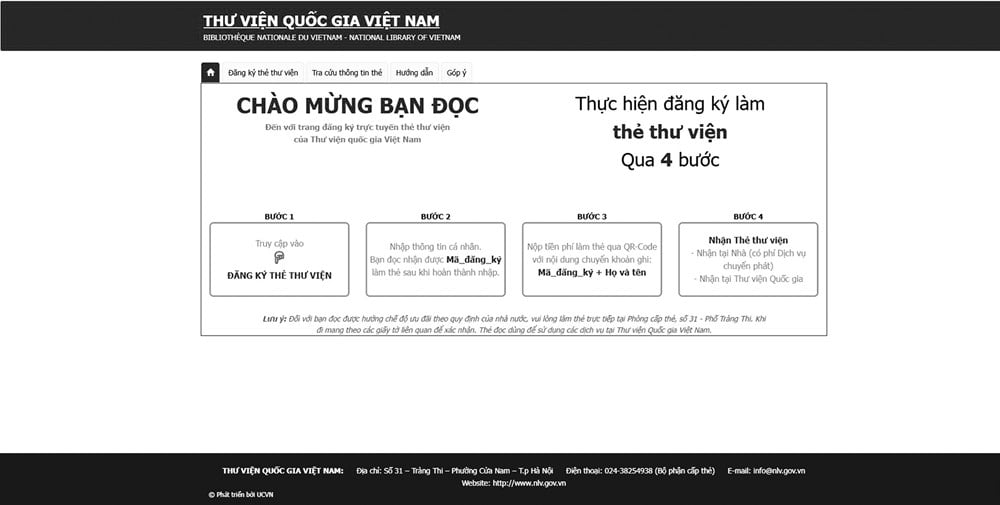
Realizing the importance of digital transformation in libraries, on February 11, 2021, the Prime Minister signed Decision No. 206/QD-TTg approving the "Digital transformation program for the library sector to 2025, with a vision to 2030", aiming to comprehensively apply digital technology , build a modern library network, improve service quality, attract readers, contribute to developing reading culture in the community and improving people's knowledge.
Removing barriers
In recent years, digital transformation in the library sector has recorded many important steps forward, opening up new opportunities in serving readers and spreading knowledge.
A bright spot is the digitization of documents, especially books, newspapers, magazines and rare documents. Units such as the National Library of Vietnam, the Center for Library and Digital Knowledge ( Hanoi National University) and many university libraries and specialized libraries have taken the lead in building digital data warehouses, contributing to the preservation of cultural heritage and helping readers in many regions easily access information resources.
At the same time, libraries have boldly applied information technology and digital solutions in management and operation. The deployment of management software has promoted the formation of smart electronic library systems of various scales. Many units have also automated the borrowing and returning process, document management and data statistics, helping to save time, reduce workload for staff and improve user experience.
Another step forward is the development of online library services. Many places have allowed remote searching and borrowing of documents, providing 24/7 service... In particular, thanks to cooperation with international publishers such as Springer, ScienceDirect, IEEE, JSTOR..., domestic users have the opportunity to access a rich, high-quality academic document repository.
Notably, the spirit of sharing and interconnectivity has promoted the birth of many shared digital libraries. Typical examples are the linked system of Ho Chi Minh City National University or the Northern universities, creating data sources to serve the learning and research needs of tens of thousands of students and lecturers. This is considered an inevitable trend, opening a sustainable direction for the library system in the digital age.
Despite many improvements, the digital transformation process in libraries still faces many limitations. Weak technological infrastructure, software that is not synchronized and does not meet international standards... makes connection and data sharing ineffective.
Digital resources are developing slowly, are entangled in copyright, have outdated equipment and lack human resources to operate. The financial issue also puts great pressure when investing in technology requires a large budget, while currently most of it still relies on fragmented projects that lack sustainability.
The quality of human resources in technology is still limited, not meeting new requirements, while awareness of the role of digital transformation in some places is not adequate, leading to a fear of innovation. These problems have caused the process of digitizing libraries, although having started, to not create the breakthrough as expected.
Synchronize solutions for further development
In the context of digital transformation associated with digital economy , digital society and digital citizenship, the library industry faces many great opportunities to modernize, connect and share information resources, and spread the reading movement. However, to effectively take advantage of this opportunity, the digital transformation process needs a comprehensive strategy with synchronous solutions, ensuring both practicality and creating a foundation for sustainable development.
Mr. Nguyen Huu Gioi, Chairman of the Vietnam Library Association, pointed out: To practically and effectively implement digital transformation in library activities, contributing to improving reading culture for all classes of people, three main pillars are needed - big data, infrastructure and technology, and human resources.
According to him, among these three factors, people play a decisive role. No matter how modern a technology system is, it is difficult to be effective without a team of staff with operational capacity and innovative thinking. Therefore, library staff in the 4.0 era must have political courage, moral qualities, professional expertise, proficiency in information technology and digital transformation skills to build truly smart libraries.
In addition, to develop libraries and reading culture in the digital age, it is necessary to raise awareness and create consensus from leaders to staff, considering digital transformation as a strategic task, not just a temporary trend. Once the thinking is unified, perfecting the legal corridor and building a roadmap for implementation in each stage will help the transformation process to be more oriented and sustainable.
Along with that, investing in information technology infrastructure and a synchronous digital data system, ensuring safety and security is an essential requirement. On this platform, libraries can build an open data ecosystem, develop online services according to international standards, bringing a modern and convenient experience to readers.
Deputy Director of the Political Affairs Department, Major General Nguyen Cong Bay and Deputy Head of the Culture and Arts Department, Director of the Public Security Library (Ministry of Public Security), Lieutenant Colonel Do Thu Thom emphasized: Libraries need to strongly transform from a place to preserve and provide documents and information to a place to store and provide knowledge with an administrative role. Building an online database, developing e-books and newspapers will expand information resources in a modern direction.
In particular, priority must be given to digitizing textbooks, theses, dissertations and scientific topics to form a centralized scientific resource repository, facilitate data exchange and comparison, reduce copying and plagiarism, thereby contributing to improving the quality of training and research and affirming the role of libraries in the digital age.
Besides the technology factor, human resources are the key. Training and fostering technology skills for library staff should be focused on, while at the same time, building a mechanism to attract high-quality technology human resources. Finally, international cooperation will help Vietnamese libraries receive new experiences, resources and technologies, shorten the gap and promote the effective digital transformation process.
Digital transformation in libraries and reading culture is not just about applying technology, but also about comprehensive change, requiring determination, synchronization and long-term vision. This is the key for the Vietnamese library system and reading culture to make a breakthrough, meeting the requirements of a knowledge society in the digital age.
Source: https://baovanhoa.vn/xuat-ban/chan-ga-phat-trien-van-hoa-doc-169959.html




![[Photo] Prime Minister Pham Minh Chinh attends the 1st Hai Phong City Party Congress](https://vphoto.vietnam.vn/thumb/1200x675/vietnam/resource/IMAGE/2025/9/27/676f179ddf8c4b4c84b4cfc8f28a9550)


![[Photo] Soldiers guard the fire and protect the forest](https://vphoto.vietnam.vn/thumb/1200x675/vietnam/resource/IMAGE/2025/9/27/7cab6a2afcf543558a98f4d87e9aaf95)


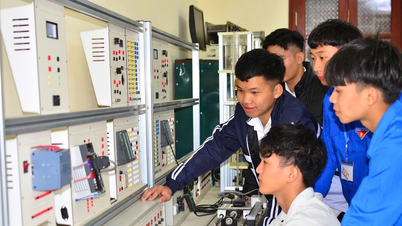





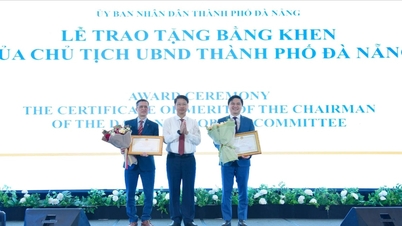




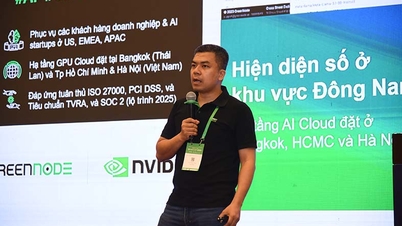
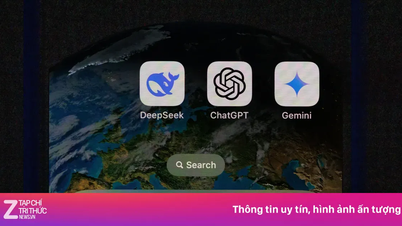








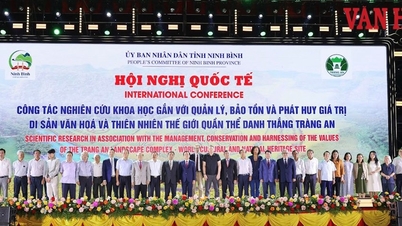

































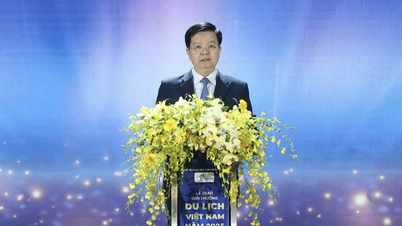

















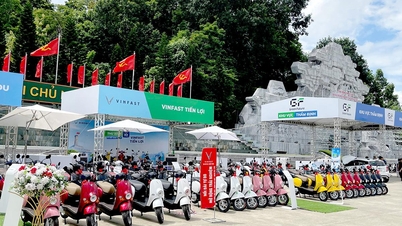




















Comment (0)